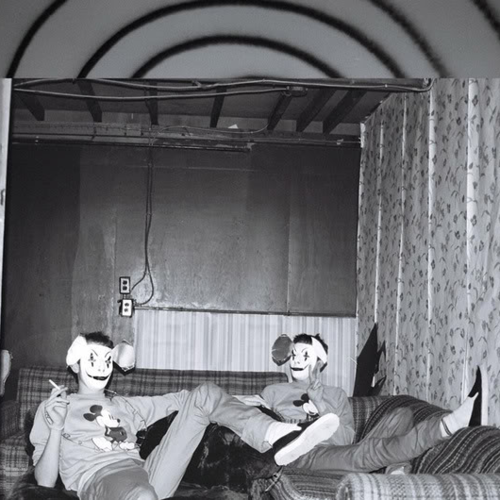Space is goddamn expensive in Vancouver, so it’s rare to hear it on tape. Laptop electronica and close-mic’d punk are easy because they can be recorded on 50 square feet of anything. But music that breathes — outside of a soft-panelled recording studio or a grandparent’s basement — is pretty hard to find.
Cindy Lee’s second album, the follow-up to 2012’s Tatlashea cassette, captures the contours of a particular space so precisely that a forensic detective could probably trace its reverberations back to an exact point of origin (something they probably should do, given that the album cover looks like it was clipped from the centrefold of a serial killer’s biography). The album has a sublimely eerie ambience, conjuring abandoned rail yards and subterranean tunnels. Or maybe it’s just a spoooky digital effects plugin.
Either way, Act of Tenderness is a dark and mesmerizing album, and a great use of space, filled with haunting ballads and “European Son”-edged guitar horror. Originally available for free download through songwriter/performer Patrick Flegel’s gif-spangled geocities website (good choice for a throwback medium), the album is a harrowing affair that plays like an emotional vivisection of its creator.
Flegel, formerly of Canada’s much-loved all-male band Women, takes the best and most baroque melodic ideas from that project and creates a starkly beautiful record, featuring dense lo-fi vocal harmonies that would almost recall the Microphones if they weren’t infused with such a woebegone late 50s/early 60s feel (think the Fleetwoods or the Paris Sisters, with a touch of Tiny Tim when Flegel’s falsetto reaches the upper end of his register).
Act of Tenderness exists in a pocket universe of mournful lovers spurned (“Last Train’s Come and Gone”), exiled (“Wandering and Solitude”) and otherwise vulnerable (the nearly acapella and exceptionally heart-wrenching “Power and Possession” is a standout track). Interspersed among these obsidian-hued ballads are an equally effective set of guitar-frenzied noise bursts, while the screeching violence of “Bonsai Garden” and the feedback-laden “Miracle of the Rose” bring all the more gravity to the album’s fragile moments.
Flegel’s vocals are pitch shifted into a mutated croon on the drum machine–led “Operation,” the album’s most club-ready hit. It’s the perfect left turn located right the middle of an album by turns romantic and sinister. The melody haunts my reverie, indeed.


